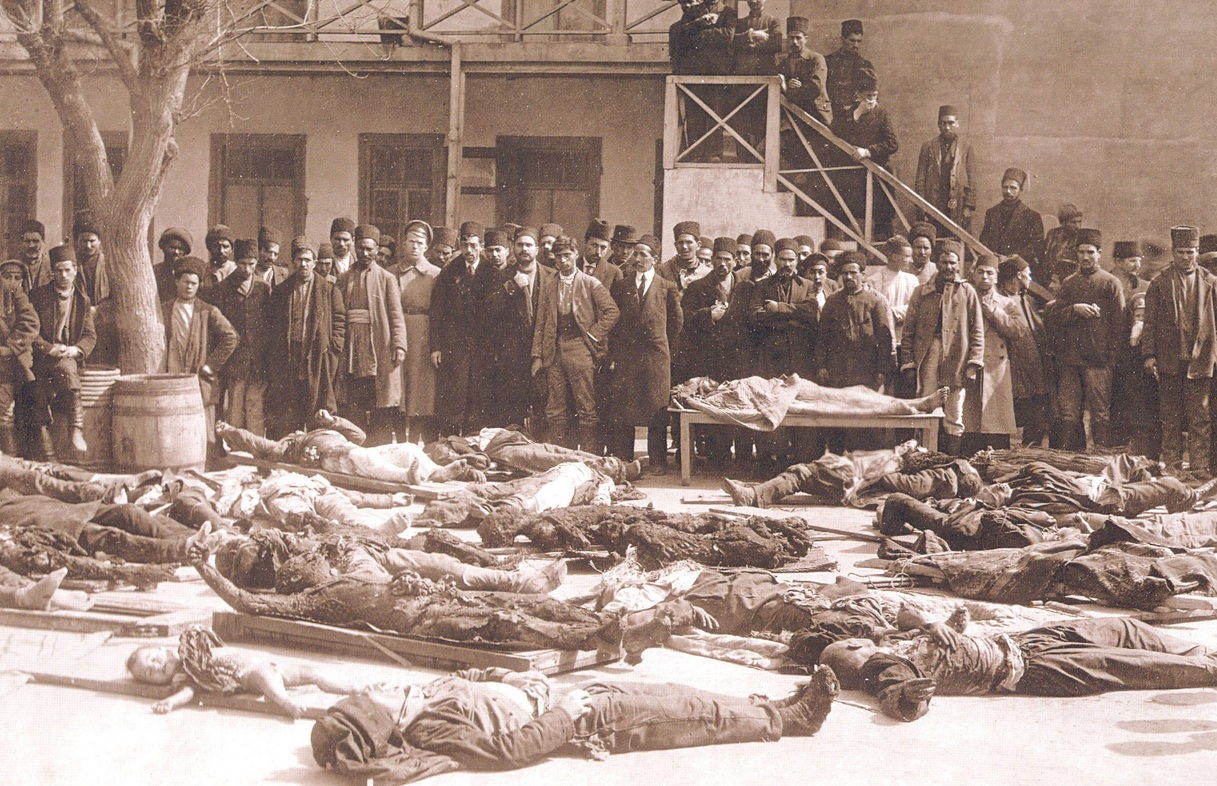Baku hosts int’l conference titled ‘No genocide’

By Nazrin Gadimova
An international conference entitled ‘No genocide’ was held at the Azerbaijan National Academy of Sciences (ANAS) on March 31.
Addressing the event, Deputy Minister of Youth and Sport Intigam Babayev said that today Azerbaijanis from all over the world commemorate the Day of Genocide of Azerbaijanis.
He further spoke about a fragile stability that exists in many countries, saying that the number of hot spots is growing in the world.
“As a result of the policy pursued by certain forces, there is an ethnic, racial cleansings, genocide,” Babayev said. “These are problems most faced by young people. Therefore the issue of genocide refers not only to historians; it should be on the agenda of governmental agencies and non-governmental organizations.”
PhD in Political Science, Senior Consultant on Public and Political Issues of the Presidential Administration of Azerbaijan Mehseti Aliyeva, in turn, noted that not knowing the past one cannot build a future.
"People, who did not preserve their past, become victims of the future. Some people do not dare to look in the past. Armenians can be called an example of such peoples. They are afraid of meeting with the tainted past. Azerbaijani people have the pure past; they look into the future with faith and hope,” Aliyeva added.
The Azerbaijani people have gone through the difficult times, she added. "However, we have never lost hope, we remain tolerant. There are peoples who created and wrote the history. The Azerbaijani people have been creating the history at all times. The history written by others [Armenians] is accompanied by false or distorted facts. Our people have been subjected to aggression, genocide, our lands are occupied. During the March genocide, about 50,000 Azerbaijanis were killed. We must draw conclusions from this genocide,” Aliyeva concluded.
Then the conference continued its work with panels.
As part of the event, foreign scientists and experts will visit the Maiden Tower, Shirvanshakhs Palace, Museum of History, the Old City and Guba Genocide Memorial Complex.
During March-April 1918, hundreds of Azerbaijanis were executed by Armenians in Baku, Shamakhi, Guba, Mughan and tens of thousands of people were expelled from their lands.
Armenian Bolshevik troops led by Stepan Shaumyan massacred thousands of people, burnt Islamic shrines and confiscated the 400-million-manat estate of Baku residents. Tezepir Mosque was bombed, and one of the magnificent architectural buildings, Ismailiyyeh, was burnt down.
The genocide policy pursued against Azerbaijanis was not limited to Baku. Armenian dashnaks killed 8,027 Azerbaijanis, including 2,560 women and 1,277 children, in 53 villages of Shamakhy, 110 km west of Baku, on March 31. Also, 16,000 Azerbaijanis were murdered in 122 villages of Guba, northern Azerbaijan.
The evidence of the Armenian vandalism in Guba is the burial of remains of the genocide victims. The burial was discovered during the construction of a stadium in Guba in 2007.
The Special Investigation Commission set up by the Azerbaijan Democratic Republic on July 15, 1918 collected a great number of documents and submitted them to the government. In 1919, the Azerbaijani Parliament made a decision on marking March 31 as the day of Azerbaijanis' genocide.
Though this date was essentially forgotten during the Soviet times, relevant investigations on the tragedy were carried out and books were published after Azerbaijan gained independence from the USSR in 1991.
President Heydar Aliyev issued a decree on March 26, 1998 to commemorate March 31 as the Day of Azerbaijanis' Genocide.
--
Nazrin Gadimova is AzerNews’ staff journalist, follow her on Twitter: @NazrinGadimova
Follow us on Twitter @AzerNewsAz
Here we are to serve you with news right now. It does not cost much, but worth your attention.
Choose to support open, independent, quality journalism and subscribe on a monthly basis.
By subscribing to our online newspaper, you can have full digital access to all news, analysis, and much more.
You can also follow AzerNEWS on Twitter @AzerNewsAz or Facebook @AzerNewsNewspaper
Thank you!
